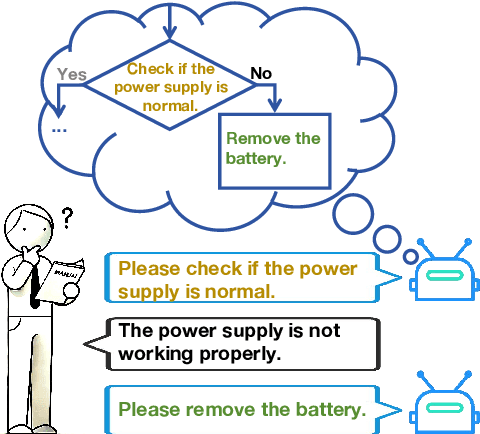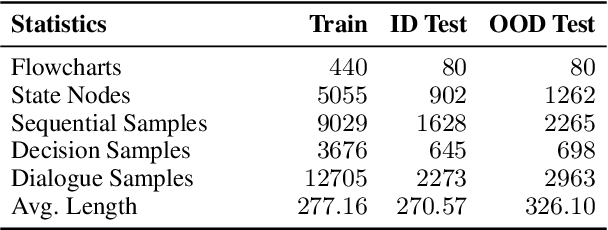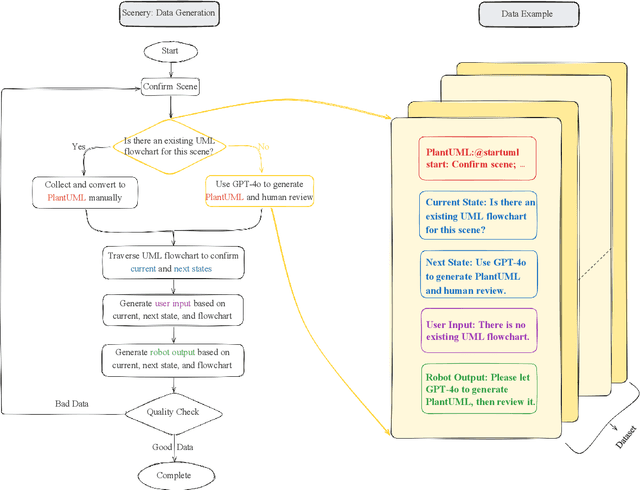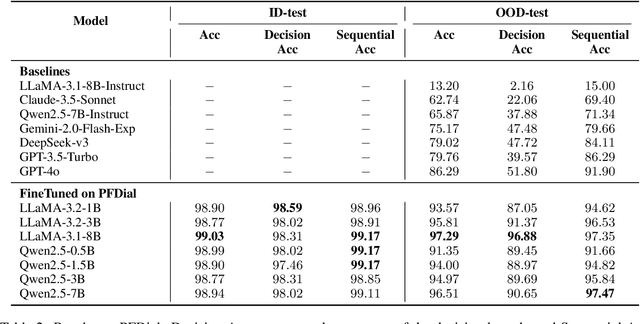Guojun Ma
W2S-AlignTree: Weak-to-Strong Inference-Time Alignment for Large Language Models via Monte Carlo Tree Search
Nov 14, 2025



Abstract:Large Language Models (LLMs) demonstrate impressive capabilities, yet their outputs often suffer from misalignment with human preferences due to the inadequacy of weak supervision and a lack of fine-grained control. Training-time alignment methods like Reinforcement Learning from Human Feedback (RLHF) face prohibitive costs in expert supervision and inherent scalability limitations, offering limited dynamic control during inference. Consequently, there is an urgent need for scalable and adaptable alignment mechanisms. To address this, we propose W2S-AlignTree, a pioneering plug-and-play inference-time alignment framework that synergistically combines Monte Carlo Tree Search (MCTS) with the Weak-to-Strong Generalization paradigm for the first time. W2S-AlignTree formulates LLM alignment as an optimal heuristic search problem within a generative search tree. By leveraging weak model's real-time, step-level signals as alignment proxies and introducing an Entropy-Aware exploration mechanism, W2S-AlignTree enables fine-grained guidance during strong model's generation without modifying its parameters. The approach dynamically balances exploration and exploitation in high-dimensional generation search trees. Experiments across controlled sentiment generation, summarization, and instruction-following show that W2S-AlignTree consistently outperforms strong baselines. Notably, W2S-AlignTree raises the performance of Llama3-8B from 1.89 to 2.19, a relative improvement of 15.9 on the summarization task.
LLMEval-3: A Large-Scale Longitudinal Study on Robust and Fair Evaluation of Large Language Models
Aug 07, 2025Abstract:Existing evaluation of Large Language Models (LLMs) on static benchmarks is vulnerable to data contamination and leaderboard overfitting, critical issues that obscure true model capabilities. To address this, we introduce LLMEval-3, a framework for dynamic evaluation of LLMs. LLMEval-3 is built on a proprietary bank of 220k graduate-level questions, from which it dynamically samples unseen test sets for each evaluation run. Its automated pipeline ensures integrity via contamination-resistant data curation, a novel anti-cheating architecture, and a calibrated LLM-as-a-judge process achieving 90% agreement with human experts, complemented by a relative ranking system for fair comparison. An 20-month longitudinal study of nearly 50 leading models reveals a performance ceiling on knowledge memorization and exposes data contamination vulnerabilities undetectable by static benchmarks. The framework demonstrates exceptional robustness in ranking stability and consistency, providing strong empirical validation for the dynamic evaluation paradigm. LLMEval-3 offers a robust and credible methodology for assessing the true capabilities of LLMs beyond leaderboard scores, promoting the development of more trustworthy evaluation standards.
Grounding Language with Vision: A Conditional Mutual Information Calibrated Decoding Strategy for Reducing Hallucinations in LVLMs
May 26, 2025Abstract:Large Vision-Language Models (LVLMs) are susceptible to hallucinations, where generated responses seem semantically plausible yet exhibit little or no relevance to the input image. Previous studies reveal that this issue primarily stems from LVLMs' over-reliance on language priors while disregarding the visual information during decoding. To alleviate this issue, we introduce a novel Conditional Pointwise Mutual Information (C-PMI) calibrated decoding strategy, which adaptively strengthens the mutual dependency between generated texts and input images to mitigate hallucinations. Unlike existing methods solely focusing on text token sampling, we propose to jointly model the contributions of visual and textual tokens to C-PMI, formulating hallucination mitigation as a bi-level optimization problem aimed at maximizing mutual information. To solve it, we design a token purification mechanism that dynamically regulates the decoding process by sampling text tokens remaining maximally relevant to the given image, while simultaneously refining image tokens most pertinent to the generated response. Extensive experiments across various benchmarks reveal that the proposed method significantly reduces hallucinations in LVLMs while preserving decoding efficiency.
Code2Logic: Game-Code-Driven Data Synthesis for Enhancing VLMs General Reasoning
May 20, 2025Abstract:Visual-language Chain-of-Thought (CoT) data resources are relatively scarce compared to text-only counterparts, limiting the improvement of reasoning capabilities in Vision Language Models (VLMs). However, high-quality vision-language reasoning data is expensive and labor-intensive to annotate. To address this issue, we leverage a promising resource: game code, which naturally contains logical structures and state transition processes. Therefore, we propose Code2Logic, a novel game-code-driven approach for multimodal reasoning data synthesis. Our approach leverages Large Language Models (LLMs) to adapt game code, enabling automatic acquisition of reasoning processes and results through code execution. Using the Code2Logic approach, we developed the GameQA dataset to train and evaluate VLMs. GameQA is cost-effective and scalable to produce, challenging for state-of-the-art models, and diverse with 30 games and 158 tasks. Surprisingly, despite training solely on game data, VLMs demonstrated out of domain generalization, specifically Qwen2.5-VL-7B improving performance by 2.33\% across 7 diverse vision-language benchmarks. Our code and dataset are available at https://github.com/tongjingqi/Code2Logic.
SPEED: Scalable, Precise, and Efficient Concept Erasure for Diffusion Models
Mar 10, 2025Abstract:Erasing concepts from large-scale text-to-image (T2I) diffusion models has become increasingly crucial due to the growing concerns over copyright infringement, offensive content, and privacy violations. However, existing methods either require costly fine-tuning or degrade image quality for non-target concepts (i.e., prior) due to inherent optimization limitations. In this paper, we introduce SPEED, a model editing-based concept erasure approach that leverages null-space constraints for scalable, precise, and efficient erasure. Specifically, SPEED incorporates Influence-based Prior Filtering (IPF) to retain the most affected non-target concepts during erasing, Directed Prior Augmentation (DPA) to expand prior coverage while maintaining semantic consistency, and Invariant Equality Constraints (IEC) to regularize model editing by explicitly preserving key invariants during the T2I generation process. Extensive evaluations across multiple concept erasure tasks demonstrate that SPEED consistently outperforms existing methods in prior preservation while achieving efficient and high-fidelity concept erasure, successfully removing 100 concepts within just 5 seconds. Our code and models are available at: https://github.com/Ouxiang-Li/SPEED.
PFDial: A Structured Dialogue Instruction Fine-tuning Method Based on UML Flowcharts
Mar 09, 2025



Abstract:Process-driven dialogue systems, which operate under strict predefined process constraints, are essential in customer service and equipment maintenance scenarios. Although Large Language Models (LLMs) have shown remarkable progress in dialogue and reasoning, they still struggle to solve these strictly constrained dialogue tasks. To address this challenge, we construct Process Flow Dialogue (PFDial) dataset, which contains 12,705 high-quality Chinese dialogue instructions derived from 440 flowcharts containing 5,055 process nodes. Based on PlantUML specification, each UML flowchart is converted into atomic dialogue units i.e., structured five-tuples. Experimental results demonstrate that a 7B model trained with merely 800 samples, and a 0.5B model trained on total data both can surpass 90% accuracy. Additionally, the 8B model can surpass GPT-4o up to 43.88% with an average of 11.00%. We further evaluate models' performance on challenging backward transitions in process flows and conduct an in-depth analysis of various dataset formats to reveal their impact on model performance in handling decision and sequential branches. The data is released in https://github.com/KongLongGeFDU/PFDial.
AnyEdit: Edit Any Knowledge Encoded in Language Models
Feb 08, 2025



Abstract:Large language models (LLMs) often produce incorrect or outdated information, necessitating efficient and precise knowledge updates. Current model editing methods, however, struggle with long-form knowledge in diverse formats, such as poetry, code snippets, and mathematical derivations. These limitations arise from their reliance on editing a single token's hidden state, a limitation we term "efficacy barrier". To solve this, we propose AnyEdit, a new autoregressive editing paradigm. It decomposes long-form knowledge into sequential chunks and iteratively edits the key token in each chunk, ensuring consistent and accurate outputs. Theoretically, we ground AnyEdit in the Chain Rule of Mutual Information, showing its ability to update any knowledge within LLMs. Empirically, it outperforms strong baselines by 21.5% on benchmarks including UnKEBench, AKEW, and our new EditEverything dataset for long-form diverse-formatted knowledge. Additionally, AnyEdit serves as a plug-and-play framework, enabling current editing methods to update knowledge with arbitrary length and format, significantly advancing the scope and practicality of LLM knowledge editing.
Predicting Large Language Model Capabilities on Closed-Book QA Tasks Using Only Information Available Prior to Training
Feb 06, 2025Abstract:The GPT-4 technical report from OpenAI suggests that model performance on specific tasks can be predicted prior to training, though methodologies remain unspecified. This approach is crucial for optimizing resource allocation and ensuring data alignment with target tasks. To achieve this vision, we focus on predicting performance on Closed-book Question Answering (CBQA) tasks, which are closely tied to pre-training data and knowledge retention. We address three major challenges: 1) mastering the entire pre-training process, especially data construction; 2) evaluating a model's knowledge retention; and 3) predicting task-specific knowledge retention using only information available prior to training. To tackle these challenges, we pre-train three large language models (i.e., 1.6B, 7B, and 13B) using 560k dollars and 520k GPU hours. We analyze the pre-training data with knowledge triples and assess knowledge retention using established methods. Additionally, we introduce the SMI metric, an information-theoretic measure that quantifies the relationship between pre-training data, model size, and task-specific knowledge retention. Our experiments reveal a strong linear correlation ($\text{R}^2 > 0.84$) between the SMI metric and the model's accuracy on CBQA tasks across models of varying sizes (i.e., 1.1B, 1.6B, 7B, and 13B). The dataset, model, and code are available at https://github.com/yuhui1038/SMI.
 Add to Chrome
Add to Chrome Add to Firefox
Add to Firefox Add to Edge
Add to Edge